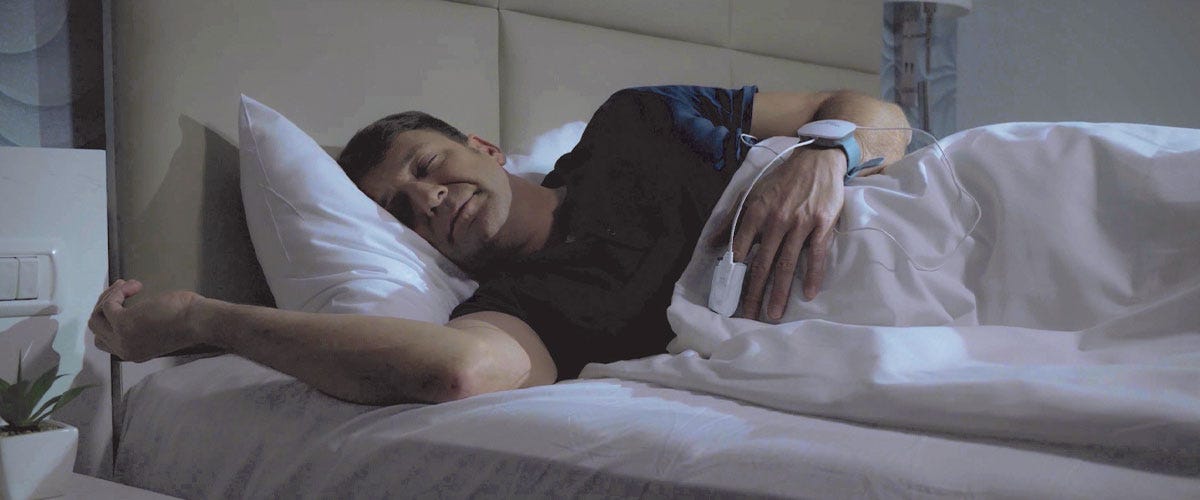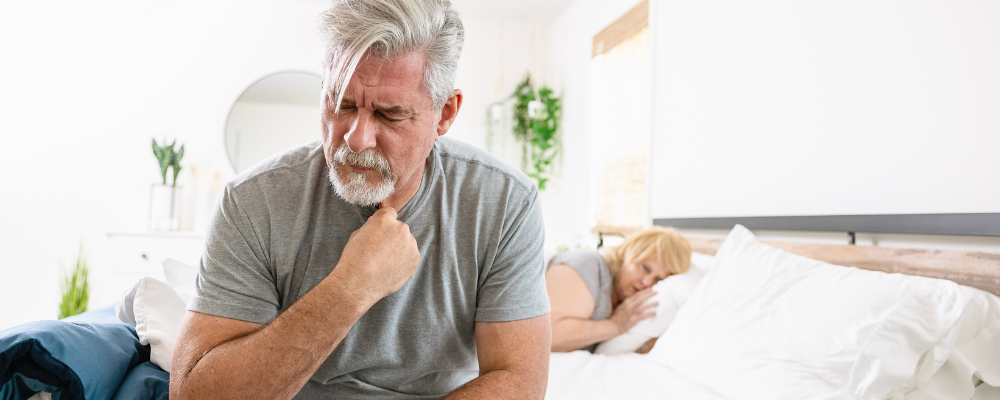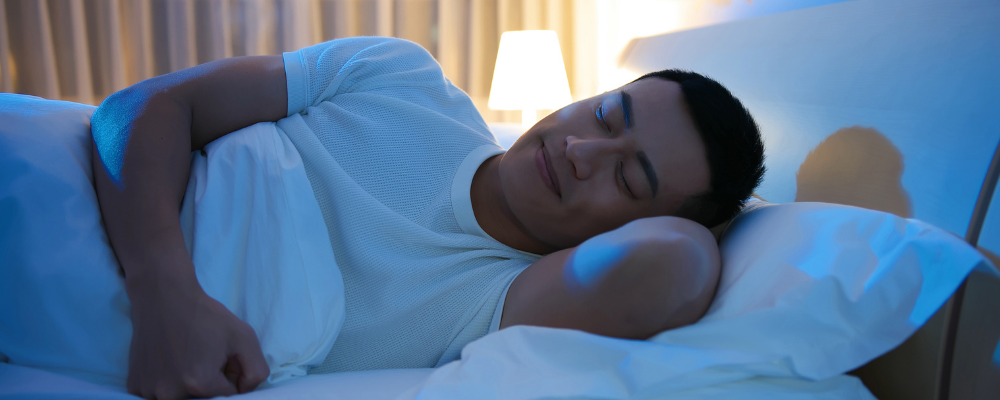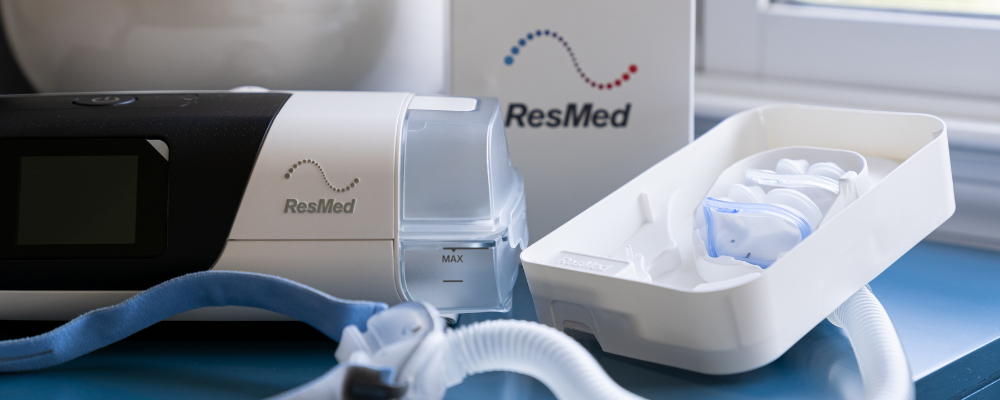After a long day, there’s nothing better than cozying up in your bed for a good night’s sleep. As you slip beneath the covers and snuggle up for some much needed rest, you may not stop and take note of your preferred sleeping position, but did you know that something as subtle as the way you position your body at night could play a significant role in your overall sleep quality? This is especially true for individuals who have sleep disorders; like sleep apnea.
To get to the bottom of which sleeping position is the best for sleep apnea patients, we recently interviewed Aeroflow Sleep’s Director of Clinical Operations and Registered Nurse, Michelle Worley, to help answer your questions. Keep reading for more!
IN THIS ARTICLE:
Can Your Sleeping Position Affect Your Sleep Quality And Health?
What Is The Best Sleeping Position If You Have Sleep Apnea?
Is It Better To Sleep On Your Left Or Right Side?
Will Elevating Your Head While Sleeping Help With Sleep Apnea?
Who To Call If Your Sleeping Position Doesn't Improve Your Sleep Apnea
CPAP SUPPLIES THROUGH INSURANCE:
Aeroflow Sleep is in-network with most primary insurance companies and is accreditted by Medicare and Medicaid. Complete our Qualify Through Insurance Form, and we will automatically check to see if your plan covers CPAP supplies; including a machine, mask, and accessories. ***Must have a sleep study to qualify.***
You will also receive the care and attention every sleep apnea patient deserves; one-on-one clinical support in-home or via telehealth, a dedicated Sleep Specialist you can contact during business hours, and a user-friendly online portal with tailored replacement schedule, important updates and notifications, and educational resources.
Let us take the headache out of healthcare. Join the Aeroflow Sleep family today! It only takes 5-7 minutes to get started.
Can Your Sleeping Position Affect Your Sleep Quality And Health?
The short answer is yes, your sleeping position may affect your sleep quality and health. To dive deeper, let’s quickly break down how each of the different sleeping positions may impact your sleep and wellness...
- Back Sleeping: According to John Hopkins Medicine, if you typically suffer from chronic pain (especially neck pain,) back sleeping may not be the ideal sleeping position for you. However, this can vary person to person. For example, other back sleepers may find that this sleep position is actually beneficial in reducing their lower back pain and/or shoulder pain.
- Stomach Sleeping: Stomach sleeping can increase your risk for back pain, neck pain, and wrinkles. The Sleep Foundation published an article that says, when this occurs, the torso is sinking lower into the mattress than the rest of the body, which can lead to spinal misalignment. However, if stomach sleeping is most comfortable for you, it is recommended that you opt for a firm mattress and/or thin pillows to increase comfort.
- Side Sleeping: By process of elimination, the Mayo Clinic suggests, "Side sleeping is the best overall sleeping position." Not only does it support the natural curve of the spine and promote healthy spinal alignment, but it can also provide back pain relief. However, you can’t win them all; for some people, side sleeping may cause shoulder pain, hip pain, and more wrinkles. To combat pain, experts suggest side sleepers place a small pillow between their knees.
But which of these positions will give you the best sleep if you have sleep apnea? The answer is coming up next!
What Is The Best Sleeping Position If You Have Sleep Apnea?
If you have obstructive sleep apnea (OSA,) the best sleeping position is still a side sleeping position. Because both back sleeping and stomach sleeping can cause extra stress or pressure on the airway, these sleeping positions often lead to or worsen an obstruction. Side sleeping, on the other hand, allows for the airway to remain open. As a result, side sleeping is proven to reduce snoring because it allows the neck to be supported by the spine in its intended supine position.
Is It Better To Sleep On Your Left Or Right Side?
If you are pregnant or suffer from gastroesophageal reflux disease (GERD), sleeping on the left side will likely result in better sleep. In fact, according to Michelle, “Sleeping on the left side increases blood flow to the fetus for pregnant women.” In addition to this, another article by The Sleep Foundation says, “Sleeping on the left side may also decrease symptoms of heartburn and acid reflux due to less pressure on internal organs.”
However, if you have sleep apnea, it doesn’t necessarily matter which side you sleep on. What’s important is that you’re sleeping on the side that makes you most comfortable. Michelle shares, “When you have sleep apnea, sleeping on either side helps reduce the chance of having an apnea event from obstruction.”
Will Elevating Your Head While Sleeping Help With Sleep Apnea?
To some extent, yes, elevating your head while sleeping will help with sleep apnea. Michelle elaborates, “Sleeping with the head of your bed elevated will help improve sleep apnea but will not resolve it completely. It may just decrease the severity.” Therefore, sleeping with your head elevated may be a good step in the right direction, but will not ultimately stop apneas from occurring, if you have sleep apnea.
Who To Call If Your Sleeping Position Doesn't Improve Your Sleep Apnea
If you're still having apneas or your sleep apnea has worsened, the American Academy of Sleep Medicine notes that continuous positive airway pressure (or CPAP) is the “most common and recognized” treatment for obstructive sleep apnea. Plus, if you have been diagnosed with sleep apnea, Aeroflow Sleep can help you get the PAP supplies you need covered by your insurance. We take the headache out of healthcare, simplifying the process and working with your insurance on your behalf. Restful sleep awaits; see if you qualify today!
References
“Choosing the Best Sleep Position.” Johns Hopkins Medicine, The Johns Hopkins University, 8 Aug. 2021, www.hopkinsmedicine.org/health/wellness-and-prevention/choosing-the-best-sleep-position.
Howland, Jason. “Mayo Clinic Minute: What Is the Best Sleeping Position?” Mayo Clinic, Mayo Foundation for Medical Education and Research, 17 Mar. 2023, newsnetwork.mayoclinic.org/discussion/mayo-clinic-minute-what-is-the-best-sleeping-position/#:~:text=%22There%27s%20a%20host%20of%20evidence,collapsing%20and%20can%20reduce%20snoring.
Suni, Eric. “Best Sleeping Positions.” Edited by Abhinav Singh, Sleep Foundation, Sleep Doctor Holdings, 22 Nov. 2023, www.sleepfoundation.org/sleeping-positions.
“What Do I Do About Sleep Apnea?” AASM Sleep Education, American Academy of Sleep Medicine, 6 Feb. 2023, sleepeducation.org/get-involved/count-on-sleep/patients/what-do-i-do-about-sleep-apnea/.
Shoen, Sarah, and Abhinav Singh. “Sleeping On Your Stomach - Is It Bad for You?” Sleep Foundation, Sleep Doctor Holdings, 21 Dec. 2023, www.sleepfoundation.org/sleeping-positions/sleeping-on-stomach.










